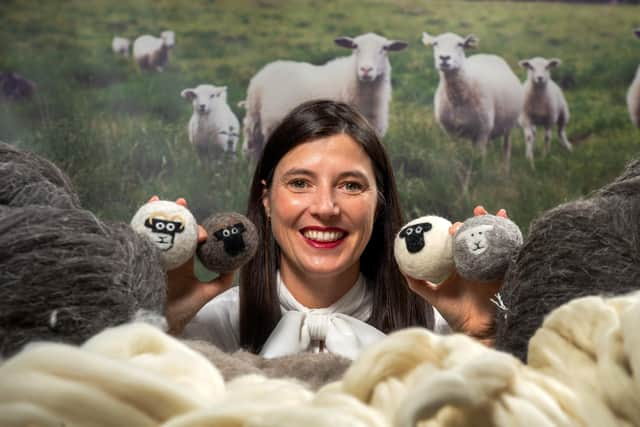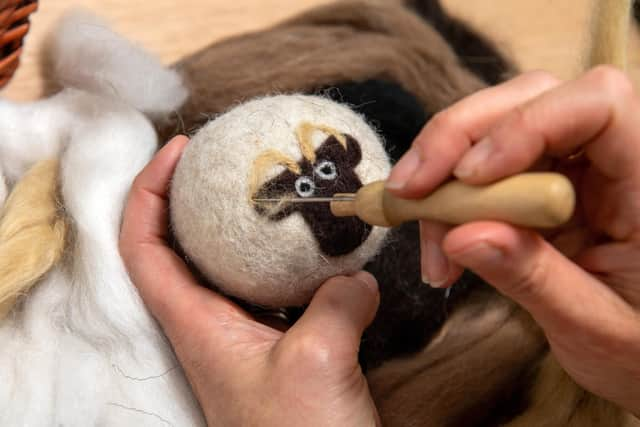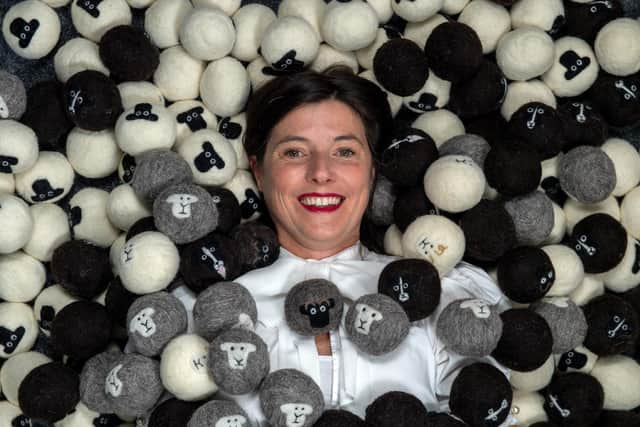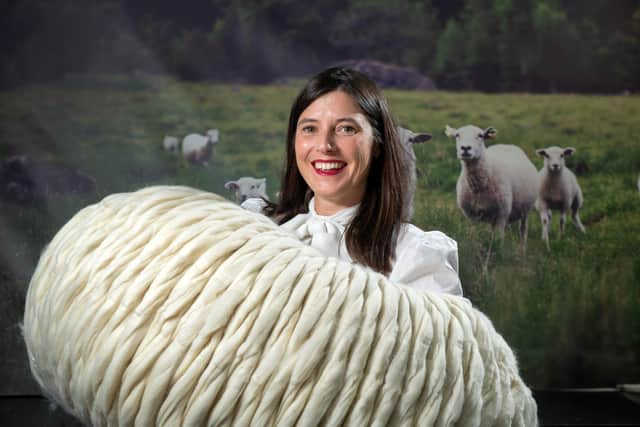Little Beau Sheep, Ilkley: Countryfile-featured owner inspired by Yorkshire farms and sheep to create wool tumble dryer ball business urges companies to ‘use more British wool’ to drive up demand for farmers
While she didn’t have a background in agriculture, Sarah Turner, from Ilkley, grew up surrounded by farms with sheep of all breeds.
After having her first child, she quickly learned that working in marketing for a global bank was not a suitable lifestyle for her.
Advertisement
Hide AdAdvertisement
Hide AdDuring a major house renovation in 2015, she moved into a rented flat with her family and that’s when inspiration struck to set up a wool business.


With lots of washing to do, no outdoor drying space and very little indoor drying space, Mrs Turner, 43, had to rely on the tumble dryer and felt guilty about its environmental impact.
In an effort to find alternative ways that don’t have dire environmental consequences, she began investing in dryer balls.
She said they speed up the process but are very noisy and made of plastic.
Advertisement
Hide AdAdvertisement
Hide AdAfter conducting some research, she found out you could make them out of wool instead - which is how her company Little Beau Sheep was born.


Since then, she has seen a real value in the material and began advocating it across the country.
Mrs Turner has also won the Innovation in Wool award and after she became a Woolman, she was invited to march nine sheep across Southwark Bridge in London on October 1, 2023.
“Being in Yorkshire, there actually was a wool shop down the road and I could quite quickly see the different variations in sheep wool by breed so I tried out a few of them,” she said.
Advertisement
Hide AdAdvertisement
Hide Ad“I started putting the faces on to make them look like the different breeds of sheep that the wool had come from.


“I set up a Facebook page and then started getting requests from people to make different breeds like their own and it just grew organically from there.
“The more I found out about wool, the more I realised it was an amazing material and started to champion that as well as the different sheep breeds.”
The variations of breeds each have their own useful properties and Mrs Turner wanted to show this through her business.
Advertisement
Hide AdAdvertisement
Hide Ad“The UK has one of the most diverse ranges of sheep breeds in the world,” she said.


“It has so many amazing properties when you use it; it repels water but it’s also a massive water absorbent, it keeps you warm when it’s cold, it keeps you cool when it’s hot if you are wearing it, your knitted items don’t need washing as much as synthetic fibres.
“Making them look like different breeds of sheep was my creative interpretation of that.
“We use British wool. We also work directly with farmers.”
Mrs Turner posted her first dryer ball on Twitter and was contacted by a farmer in Airedale who said that the horns she made were wrong.
Advertisement
Hide AdAdvertisement
Hide AdThey met up and they both donated to the Rare Breeds Survival Trust (RBST), a charity that looks after all British native breeds of livestock.
Their collaboration was featured in Countryfile in 2019.
“It’s a really surreal experience to be one of the ones actually driving the sheep across,” she said.
“They were very well behaved thankfully.
“It’s a celebration of the historic right of the Freeman, showcasing wool and what liveries are doing and the fact that they still exist because I’m guessing a lot of people don’t realise that.”
The objective of Mrs Turner’s business is to encourage people to use wool as an alternative to plastic.
“It’s all about sustainable swaps,” she said.
Advertisement
Hide AdAdvertisement
Hide Ad“The laundry balls help with your tumble drying, the felted soaps replace plastic bottles in the shower because they last a lot longer and they are all made with British wool to look like the different breeds of sheep.
“We use all types of British wool in our products; the most popular are Swaledale, Herdwick and Suffolk.
“We have a collectors edition that includes 14 different sheep plus a sheep dog to keep them under control.
“Our latest limited edition is made with Boreray wool from Gam Farm Rare Breeds in the Yorkshire Dales. This pack we can name the sheep: Peanut, Sybil and Treacle.”
Advertisement
Hide AdAdvertisement
Hide AdMrs Turner has become a champion for wool and has urged businesses to use British wool in particular.
“We need consumer pressure on businesses to actually use British wool, not for it just to be made in Britain, but to be British wool,” she said.
“I think if consumers become aware that we need to use British wool more and start demanding it from companies, that’s when we can start driving the demand for it that will then lead back to the farmers.”
Comment Guidelines
National World encourages reader discussion on our stories. User feedback, insights and back-and-forth exchanges add a rich layer of context to reporting. Please review our Community Guidelines before commenting.
